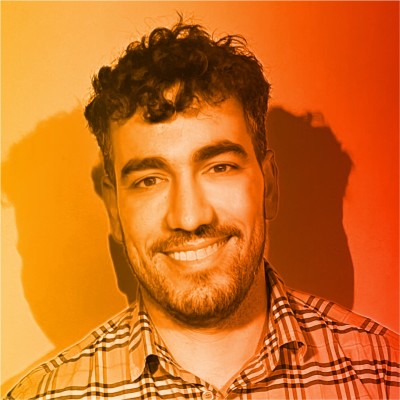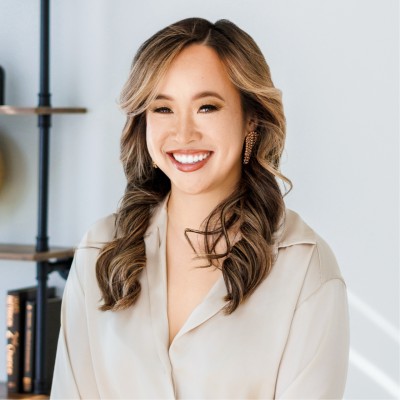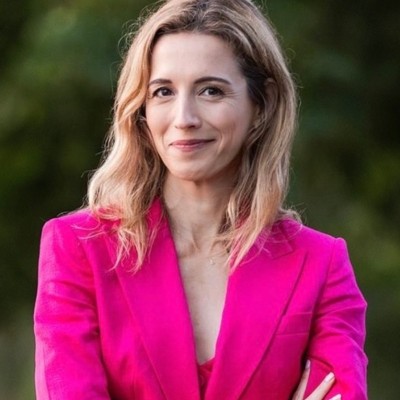Laurel Hoffmann is a production patternmaker who learned skills in the industry. She believes in the drafting, fitting, grading, and sewing procedures she learned there and believes that those should be available to anyone who would like to learn them. She loved working in factories. Factories make beautiful things that people want to buy. She loves the classroom, where she enjoys interacting with her students. And, she likes to write, publish, market, and work with others.
What were your initial years of growing up like? Tell us about your life before starting your corporate journey/venture/initiative.
I grew up on a farm. There wasn’t much money for clothing, but my grandmother who lived just up the road, was a seamstress. She was my first sewing teacher. I always planned to go to college and become a career woman, as had the women on my mother’s side of the family, even back in the 1800s. I was unaware that because of my sex, a career would be difficult to achieve. I planned to become a musician. I studied piano, violin, and flute, but saw that the Philadelphia Orchestra hired only men. I had a high soprano operatic voice. I thought about becoming a diva. Sewing was something I did, but I never considered it as a career. I was never very happy with anything I made until after I entered the industry.
I admired and patterned myself after my paternal grandfather who was an entrepreneur and very gregarious, and my maternal uncle who was an architect for the navy, designing the Great Lakes Naval Hospital and others. I had many boy cousins. I competed with them as I saw no difference. Later, when I was in college, I realized there was. It made me angry. I was determined to show them up! They love it. My family encourages success.
Was there any turning point in your life that changed your journey? If so, what was it? Please tell us the backstory behind it.
At the end of eighth grade my class was taken to the high school for orientation. When the editor of the high school paper spoke, I decided that when I would be a senior, I would be the editor of the high school paper.
In my senior year I had enjoyed working on the high school paper so much, I decided to study journalism. My mentor suggested that I attend Syracuse University, which had the best undergraduate program east of the Mississippi. I applied and was accepted.
It was the turning point of my life. Off the farm and away from the Southern culture of my community, now living with New Yorkers, I experienced culture shock, the changes were that extreme.
Shortly after arriving at the University, I had a premonition that one day I would teach in college and also write something very important. Years later, doing exactly that, I remembered the premonition.
Every industry that is now a large-scale, top-notch business once started as a small idea in the minds of entrepreneurs. What was that idea that made you start this brand? How did such a unique idea strike you, and what motivated you to “YES, go for it?”
In the late sixties/early seventies the fashion industry was leaving Philadelphia, which in the 1940s had manufactured more women’s clothing than any other city in the world.
The women I had worked with who sewed in the factories were losing their jobs. They were putting their children through school, paying their mortgages, moving up in the world. Now their jobs are gone.
The city did nothing to help. I felt I needed to step up. Now sewing at home for my family, I quickly realized the design-room skills I had learned in industry could easily be used in the home. I decided to write those skills down, with the intent of providing those skills so the women I had worked with and others like them could start cottage industries in their homes and communities.
Tell us something about your initiative or current role. What is it about, and what impact are you trying to make?
My son and I are making videos that are being shown on PhillyCAM. org which televises to the Philadelphia community. Although I have approached the various colleges where I have taught, and other organizations here in Philadelphia, only PhillyCAM has helped with my project. https://phillycam.org/project/creating-fashion
I have finished my eight-book series that present the low-level engineering apparel production procedures now used throughout the global apparel industry. The procedures were developed during the First and Second World War by small USA manufacturers. They had been making other products using low-level engineering techniques when the war(s) began. My books are now available on my website at LaurelHoffmann.com. Their information mirrors that suggested by E.F.Schumacher in Small is Beautiful. The books present high-end procedures.
Certificates can be earned by anyone who wishes to take and pass any of the eight independent courses that are supported by my books and their supporting materials, all available from my website.
I just taught a three-day master class for the Association of Sewers and Design Professionals at their annual conference, this year in Baltimore.
https://www.sewingprofessionals.com/Conference-Instructors
Everyone has their own set of challenges when starting an entrepreneurial journey. Still, the most essential part for others to learn is how you deal with those. Would you like to share with us your challenges and your coping mechanisms?
To write my material I needed to know what was being taught in the college fashion programs. Fortunately the 4-H Club I had organized for my daughter and several of her friends did so well, I was asked to teach the new sewing course at Jefferson University, back in 1990. That gave me the opportunity to audit other fashion courses, as well as the textile courses offered at the University.
I used the money I was paid to buy the computers, printers, and other office materials I needed to write the textbooks, which I was now able to test in the classroom test. When I stepped over to the Continuing Professional Education department I got fantastic feedback from the design room personnel and other professional women who took my program.
It took 30 years to write the books. Everytime I would be about to give up, something would happen that would keep me going. I have learned that bad luck is good luck in disguise. Once I quit a job with no job to go to. In the paper that night was an ad for a better job. I was hired the next day.
While the global pandemic of COVID-19 is associated primarily with adversities, it has also brought about a true boom in startups, with successful entrepreneurship in many countries. The pandemic has impacted all of us in one way or another. Would you like to share your experience on a personal and professional level?
My son is a production editor for the English publishing company, Taylor and Francis. When the pandemic hit he stopped commuting to their satellite in Philadelphia and began working for them at home.
No longer commuting, he began to think about his plans to become an animator and realized the time involved would be prohibitive.
He thought about all the material I have. He decided to join me and promote my business. We now make videos, which as previously mentioned, are televised to the Philadelphia community. He lives one mile from our home. He has extensive video equipment set up in his studio. He likes to be behind the camera, I like to be in front.
Your journey and your vision are very inspiring, but are there any achievements or accomplishments you would like to mention?
When I decided to start a 4-H Clothing and Textile club for my daughter and several of her friends, I was told by the county agent that I could teach any sewing method I pleased. When I said that I would teach industrial methods I was told that was the one method I could not teach. I asked why not? And was told We don’t teach that.
I asked the other mothers what they wanted their daughters to learn. They answered: We don’t care about 4-H. We want our daughters to learn to sew the way you sew.
I taught industrial methods. The final (third) year of my club’s participation in 4-H, although everyone agreed at the final fashion show that my daughter’s outfit was the best in the show, she won no prizes and cried all the way home. I pointed out that life isn’t always fair. But when my club’s work was judged for the fair, all three girls received perfect scores. Their work was shown at the fair with the huge rosettes they had won. My daughter then realized the fashion show had been set up.
The girls, still in the 4H junior devision, just turned 12 and 13, had completed the ten year program in three. Their achievements were the reason I was asked to teach at Jefferson, even though I had yet to finish my degree. https://laurelhoffmann.com/4-h-clover-club/
Would you like to share with our young budding women entrepreneurs the change you would like to see in the world if given an opportunity?
I believe that women need access to the sewing procedures used in the industry, scaled down, so they can be used in the home.
Women need access to attractive clothing. Although some believe that what we wear doesn’t matter, it matters a LOT! Everyday we get dressed. Everything in our closets we put there. What we wear tells others who we are. Wearing attractive clothing gets the better job, the pay raise, the man. Sewing for others should pay.
What’s the most important thing you’ve learned in your personal life and professional journey? What is your personal motto in life?
Maintaining one’s self-respect is, in my opinion, the most important aspect of one’s life. One must stand for one’s convictions, right wrongs when confronted, stand up for what is right. I walked off the factory floor when my boss insisted that I do work that I knew would stop the factory line. I want to be a person I respect and like, and that others respect and like.
Women are a growing force in the workplaces worldwide, standing shoulder to shoulder with their male counterparts. There are cracks in glass ceilings everywhere, with many women breaking through to carve out a space right at the top of the pyramid. What are your thoughts about women’s leadership today?
Women’s leadership is growing. On my first job I was a clerk typist for a lawyer who did workman’s compensation. I learned then that the combination of male and female combines the skills of both sexes. I grew up with many boy cousins. I lived on a farm with men around all day. I believe that as more and more women stand shoulder and shoulder with men, the world will benefit in ways we have yet to realize or imagine.
I am one of the first women to become a production patternmaker. Until then, only men had such positions. I LOVE running factories. I was good at it. I’m hoping to make those skills available to women all over the globe.
With your grit and determination, you are making a considerable impact, breaking through, and serving as role models for many budding entrepreneurs. What would you want to say to our young women leaders/audience reading this?
GO for it!










